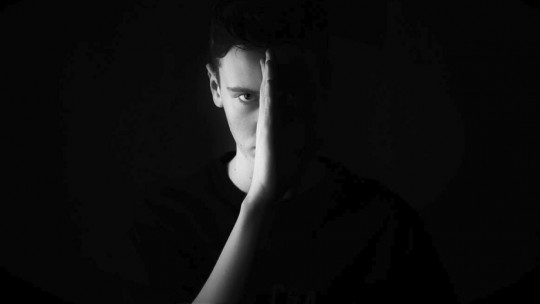
Fear of change or uncertainty is one of the most frequent psychological and emotional difficulties in humans. We fear the future, the uncertainty, what may happen, and above all we doubt if we will be able to face it. The fear of change or uncertainty causes us anxiety, anguish, and eventually discouragement. How can we solve it?
Living with a certain fear of change is natural. Human beings are social beings, with habits and routines. We need a certain routine to build security and stability. However, we live in an increasingly uncertain and dynamic context, where we increasingly feel more insecure.
We cannot avoid the fear of change, but you can learn to manage it so that it is not so intense, frequent and long-lasting, so that it does not limit you so much and you can live with more acceptance and confidence.
Now that the end of the year is approaching, it is always a good opportunity to reflect and look for the change you need, but not a change in what is happening outside, but a change in yourself that is deep and stable.
Why are we so afraid of change and uncertainty? What is it leading you to? How can you solve it to live with more well-being?
We are going to look for solutions to these answers from the experiences gained by the people I accompany in their change processes. Let’s go for it.
Why are we afraid of change and uncertainty?
Feeling afraid at certain times in our lives is natural. It can occur in relationships, in the face of possible crises or breakups, or when thinking about the future: what will happen to children, relationships, work…
Fear is actually a positive emotion (like any emotion if you know how to manage it properly), since protects us. The problem comes when we do not know how to understand and manage those emotions.
By acting as a protective emotion, fear tries to paralyze us in the face of possible risks. However, these risks are always subjective interpretations. In this way, fear paralyzes us through doubts, with intrusive thoughts, causing us not to make decisions or, on the contrary, avoiding certain contexts too much or even trying to control other situations (as happens with relationships).
Thus, We are afraid of all those forecasts that make us feel insecure and at risk. It can occur due to several factors.
What causes us fear of change
These are the effects of this phenomenon:
Although fear of change may seem like the problem, it’s actually about the way you understand and manage it.
Psychological factors: anxiety and discouragement
Finally, When the fear of change or uncertainty is too constant, anxiety is generated. Anxiety is so exhausting that over time it leads to discouragement. We become discouraged because we have been living in an anxious state for too long.
The anxiety It is a state of alert, which conditions your way of interpreting situations and acting. In turn, anxiety is related to the way you breathe. When you enter an anxious state, you breathe quickly and shallowly, so that the diaphragm dilates little and moves quickly. This movement causes that unpleasant pressure in the chest.
If your fear of change or uncertainty has led you to an anxious state, it is essential to first reduce the intensity of the anxiety. Although it is common to do it with drugs, this is only useful in times of crisis. In the long term, what is really functional is learning to breathe completely, in order to reduce the intensity of anxiety and not depend on drugs that over time generate tolerance.
Now, what purpose does that fear serve us? How can you manage it so that it doesn’t condition you so much?
What is fear for?
Fear, as we talk, is a practical emotion. We feel it throughout our lives to protect ourselves, generate security and autonomy. However, as we become adults we experience unpleasant experiences (breakups, goals that are not achieved, conflicts in relationships, etc.). The mission of fear is to protect us, but if we do not know how to understand it and manage it in a functional way, it ends up being too intense, frequent and long-lasting.
It is not about being afraid of something specific, but about living conditioned by fear. Fear, as a state of alert, constantly warns us of possible risks, but they really depend on our interpretation of the facts.
One of the most common interpretations is that we are afraid of the past because of what we have experienced. In reality, any past experience only conditions us depending on how you manage those emotions.
That is to say: our fear of what may happen It is conditioned by what we do and interpret, not by the past. If you learn to understand and manage what you feel, no past experience will be so difficult to overcome. Let’s see how you can achieve it.
How to face the uncertain: a change in you
Our life and future is pure uncertainty, and We cannot control the external factors that will come into our lives. People build routine and habits to generate security. However, the passage of time means that we live with more and more fear and stress.
The problem is not in those emotions or fear (without which it would not be possible to live) but in the way you understand and manage it. For this reason, the change must come from you, in a deep and practical way. It is not about not being afraid, but about knowing how to manage it to live with more confidence and acceptance.
For this it is necessary to have these keys and learnings:
There are also a series of keys to manage fear and make it work 100%. Let’s see which ones.
Keys to managing fear
As we talked, fear in itself is a positive emotion as it protects our life. Trying to “live without fear” (as they say today) is meaningless. However, we can learn to manage fear so that it has the right intensity and does not limit your life.
The keys to managing it in a functional and, above all, stable way are the following:
Concluding…
The most important key to achieving the change and learning you need 100% is to have expert and, above all, constant company. For this reason, as a psychologist and coach I do not accompany only with occasional sessions, but with consistency, every day, and for any need that people have. We also work with weekly sessions and tools, so that we achieve changes from the beginning and can internalize that learning.
If that is what you want, remember at empowermenthumano.com or in my Psychology and Mind profile you can find the option to contact me. What we need is not to leave fear behind, but to have the firm commitment to know and manage it so that it becomes smaller and smaller and you can live with more freedom, peace and well-being.








